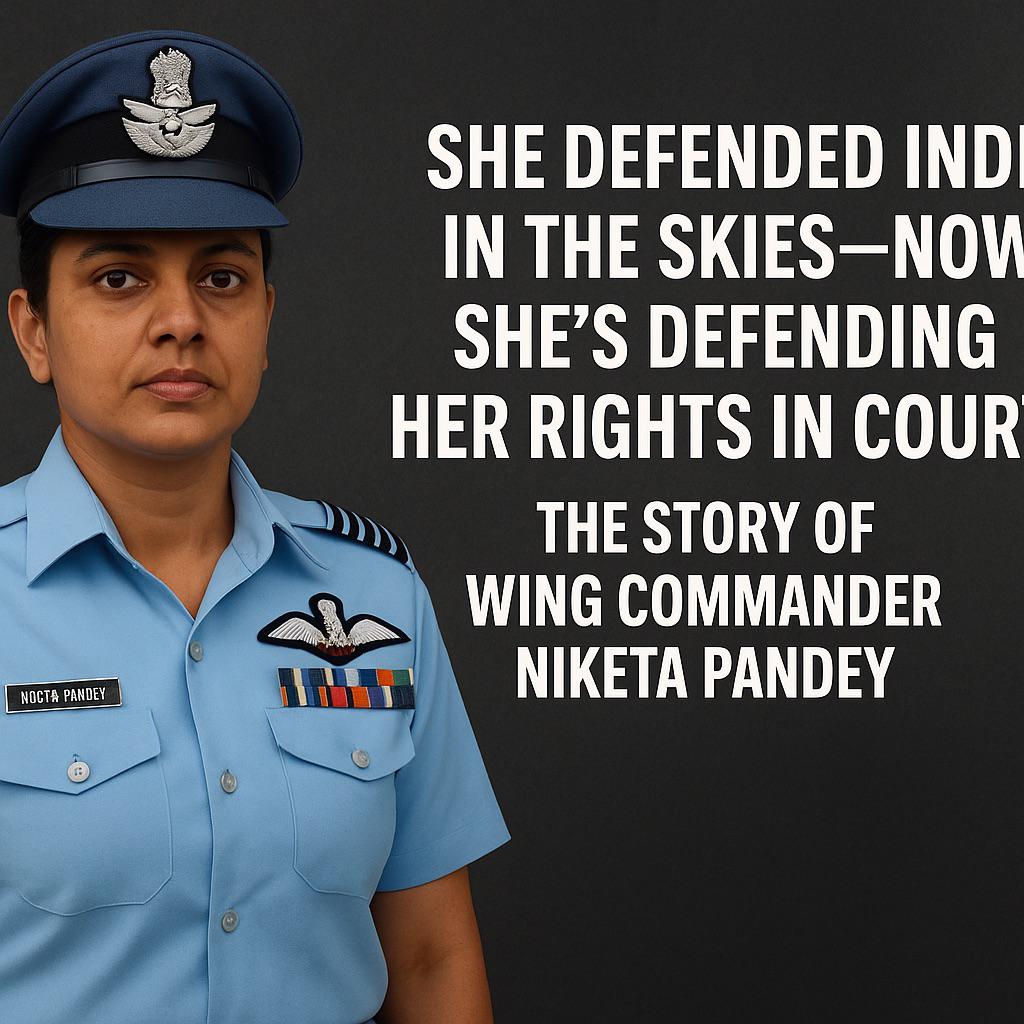Niketa Pandey, a wing commander in the Indian Air Force (IAF), has recently become a significant figure in India’s armed forces. Her legal battle for a Permanent Commission (PC) has gained national attention, highlighting prominent challenges faced by women officers.
A Distinguished Career
Niketa Pandey was Commissioned through the Short Service Commission (SSC) route in 2011,Wing Commander Pandey has served for over 13.5 years at IAF . As a fighter controller, she has played a pivotal role in India’s air defense operations, significant ones include Operation Balakot in 2019 and Operation Sindoor in 2025. Her expertise is operating in the Integrated Air Command and Control System (IACCS) has been considered notable in these missions. Notably, she ranked second in the national merit list of expert air fighter controllers.
The Legal Battle
Despite her prominent service record,She was denied a Permanent Commission, a status whichwould allow her to serve until retirement. This denial was based on a 2019 IAF policy revision, which critically argues limiting women officers career progressive opportunities .
In demand for justice , Niketa Pandey filed a petition in the Supreme Court, in respect to voilation of Articles 14, 15, and 16 of the Indian Constitution, which provides rights related to equality before the law and prohibit discrimination based on gender. Her legal team, led by Senior Advocate Menaka Guruswamy, argued that the policy was did not reflected evolving role of women in the armed forces and should stand outdated .
Supreme Court’s Intervention
On May 22, 2025, the Supreme Court bench comprising Justices Surya Kant and N. Kotiswar Singh, ordered the Centre and the IAF not to take any action against Niketa Pandey until any further notice is made even they acknowledged the challenges faced by SSC officers and remarked the need for a more stable and fair system for such officers. Justice Kant remarked, “That sense of uncertainty may not be good for the Armed Forces.”
The court also questioned the facts behind the IAF’s policy, suggesting that the selection of SSC officers should align with the number of available Permanent Commission opportunities to prevent undue competition .
Implications for the Armed Forces
Wing Commander Pandey’s case is not only a single case. Earlier in May 2025, the Supreme Court granted the same relief to over 50 women SSC officers in the Indian Army, which remarks the beginning of dwelling into a broader issue of gender discrimination in the armed forces.
The case could set a precedent for progression of women career in the military which highlightsthe need for update in policies of armed forces to reflect the changing dynamics and contributions of women officers.
Conclusion
The case would serve asa catalyst for further discussions on gender equitable and reforms in the indian military establishment. The nation awaits the Supreme Court’s final verdict, while thejourney of Niketa Pandey continues to inspire for equitable armed forces.
About the author
Chetna is a 3rd-year BBA LLB student at Maharishi Markandeshwar University, Mullana. With a passion for law, policy, and current affairs, she actively engages in research and writing on legal developments shaping society. Chetna aims to bridge the gap between legal discourse and public understanding through clear and concise analysis.

